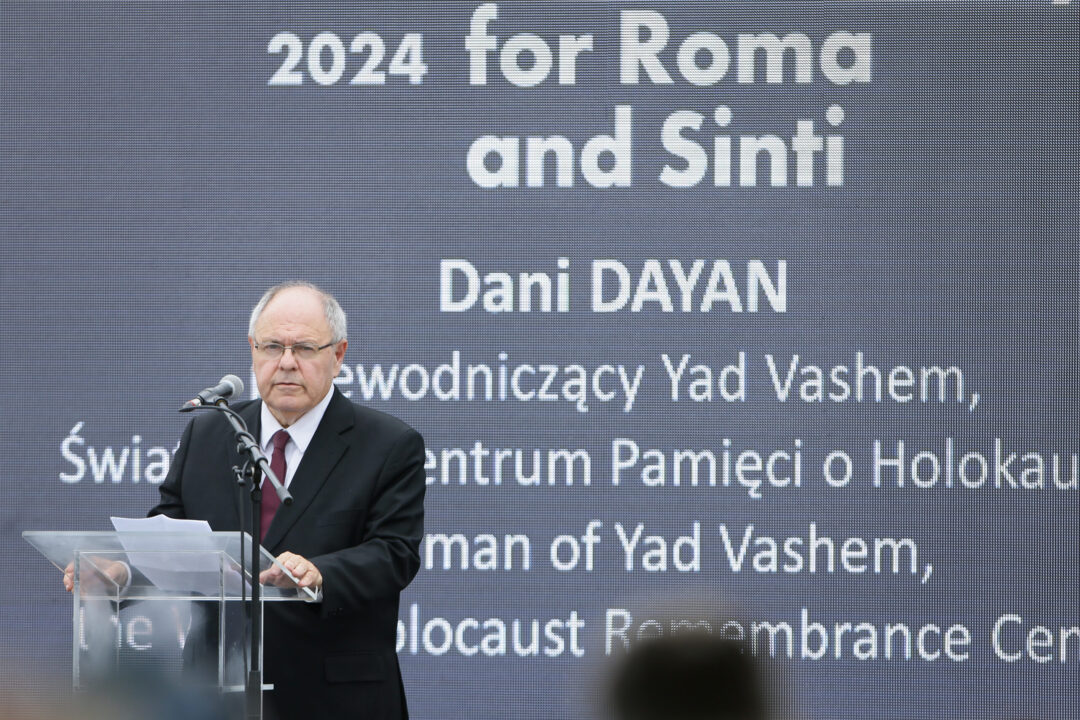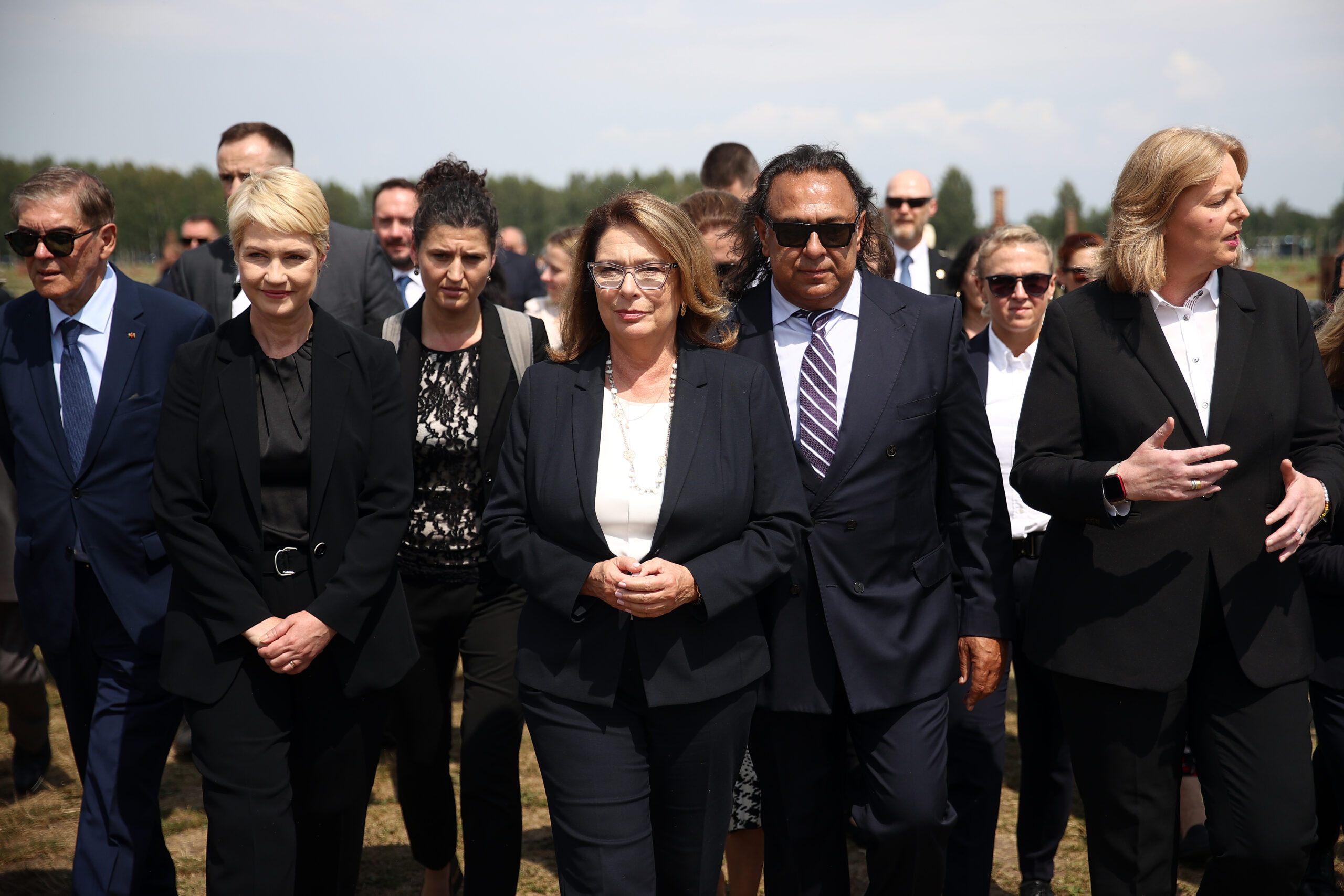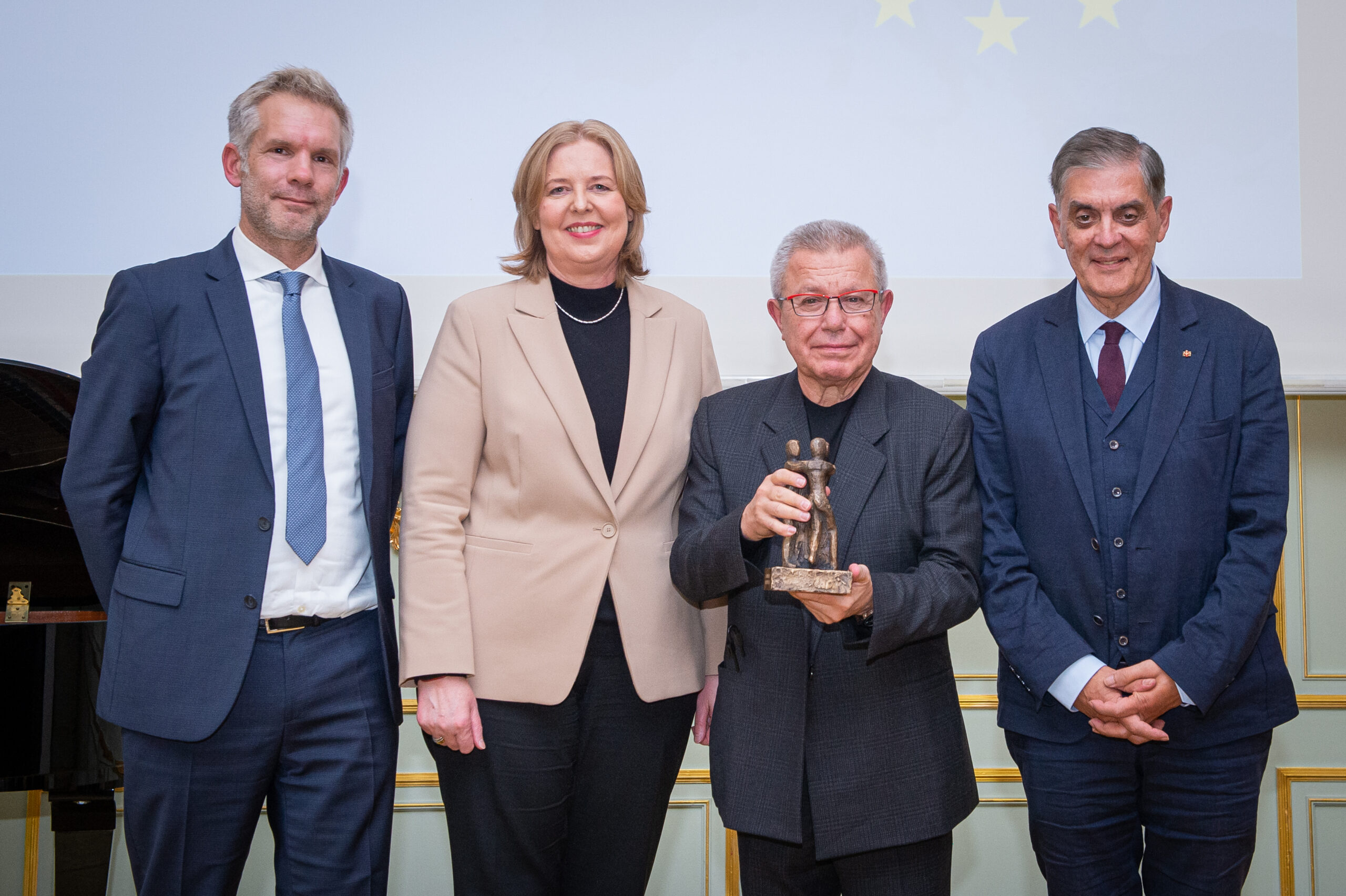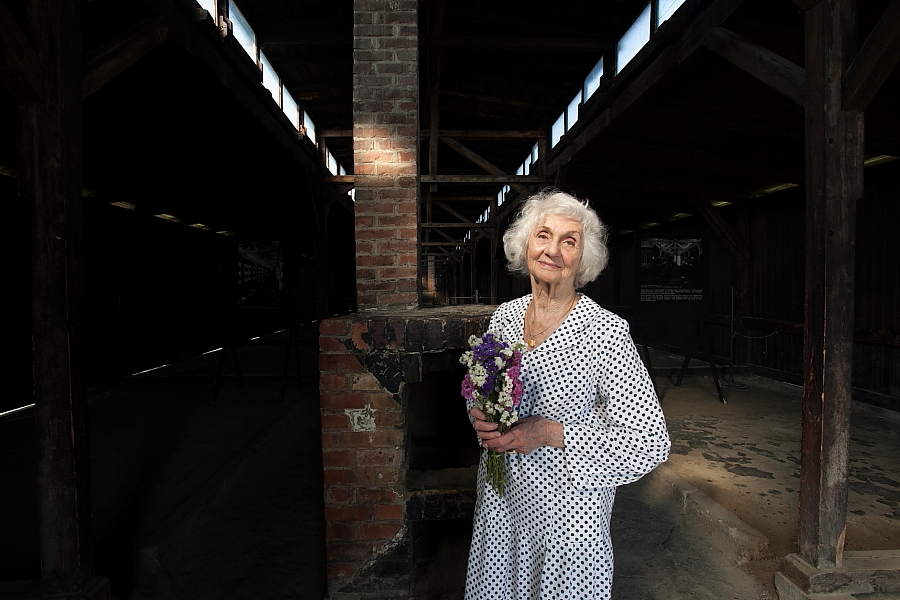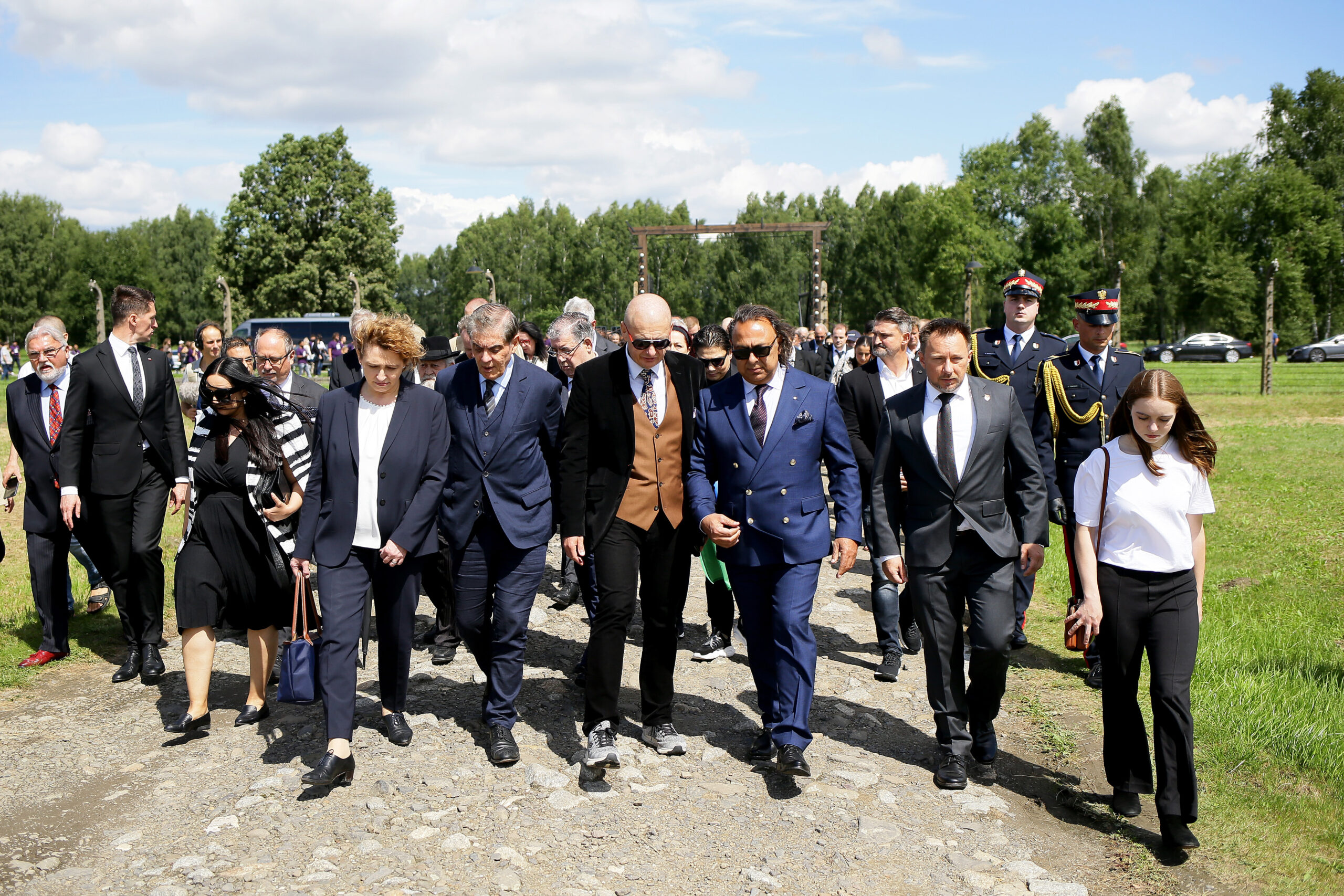On 2 August 2024, the 80th anniversary was commemorated with the last survivors of the Holocaust against Sinti and Roma during a central international commemoration on European Holocaust Memorial Day for Sinti and Roma 2024 at the site of this crime against humanity.
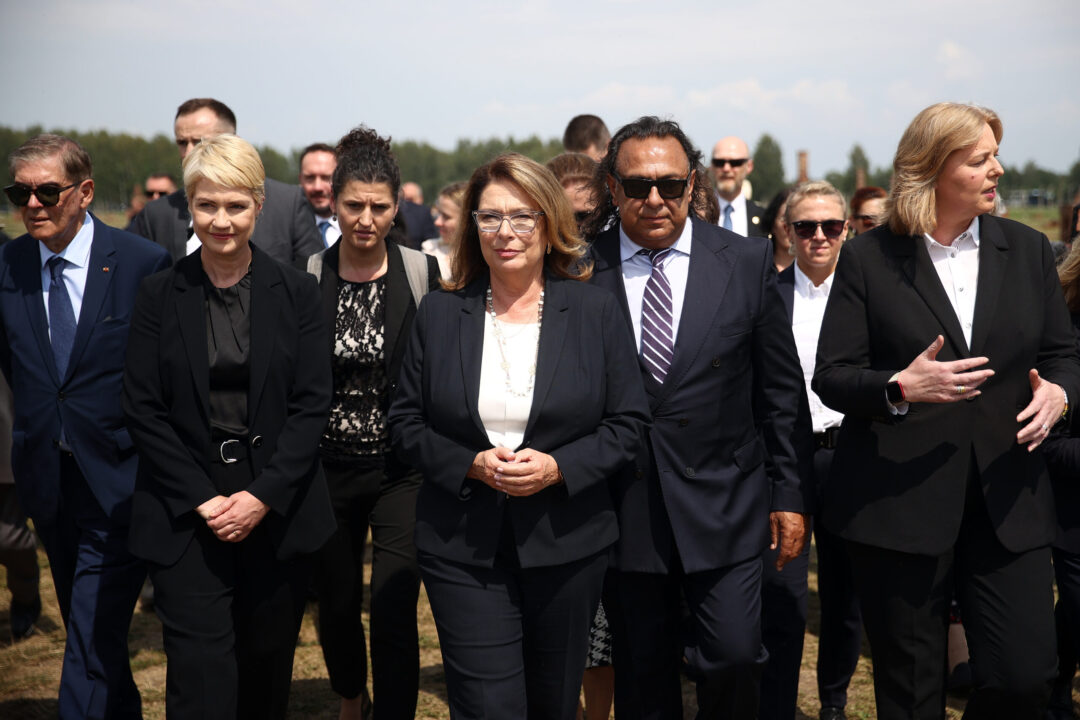
On 2 August, the Central Council of German Sinti and Roma and the Association of Roma in Poland commemorate the 80th anniversary of the murder of the last surviving members of the Roma minority in Auschwitz. On the night of 2 to 3 August 1944, 4300 Sinti and Roma – women, children and elderly people – were forced into the gas chambers by the SS in the Auschwitz-Birkenau extermination camp despite their fierce resistance. In 2015, the European Parliament declared 2 August as European Holocaust Memorial Day for Roma and Sinti to commemorate the 500,000 victims who were murdered in Nazi-occupied Europe.
The SS had already attempted to dissolve camp section B II e on 16 May 1944 and murder thousands of members of the minority in the gas chambers. This extermination operation was cancelled due to the fierce resistance of the Sinti and Roma – probably also to prevent the resistance from spreading to other sections of the camp.
Remembrance always means responsibility for the present. When we remember the Nazi crimes and the Holocaust 80 years after the end of the war, we must also stand up for the rule of law and a thriving democracy in the present. That is why the anniversary also addresses the increasing antigypsyism, antisemitism and racism in Europe and worldwide. The states of the world are called upon to do justice to the legacy of Auschwitz and to resolutely oppose these developments.
Alma Klasing, a Holocaust survivor who lost close relatives in Auschwitz, emphasised in her speech in Auschwitz: “The electoral success of the right-wing parties frightens me greatly. That is why I would like to warn young people in particular against these false prophets and ask you with all my heart: defend our democracy.”
Holocaust survivor Bolesław Rumanowski from Poland also stressed the importance of passing on the memory onto the younger generation: “This anniversary is an opportunity for all of us to reflect and remember. We must remind of those who perished and those who survived. It is our moral duty to pass on the memory of the Holocaust to future generations.”
The Chairman of the Central Council of German Sinti and Roma, Romani Rose, referred to the legacy of all those murdered at Auschwitz, whose ashes cover the ground of the extermination camp. He emphasised: “The experience of Nazi dictatorship obliges us to defend human dignity and human rights everywhere and for everyone. Democracies must once again place universal human rights at the centre of their actions. We know that thousands of people drown in the Mediterranean every year and we know that thousands are abandoned in the deserts of Tunisia and Libya. The legacy of the victims of Auschwitz forbids us to accept this indifference.”
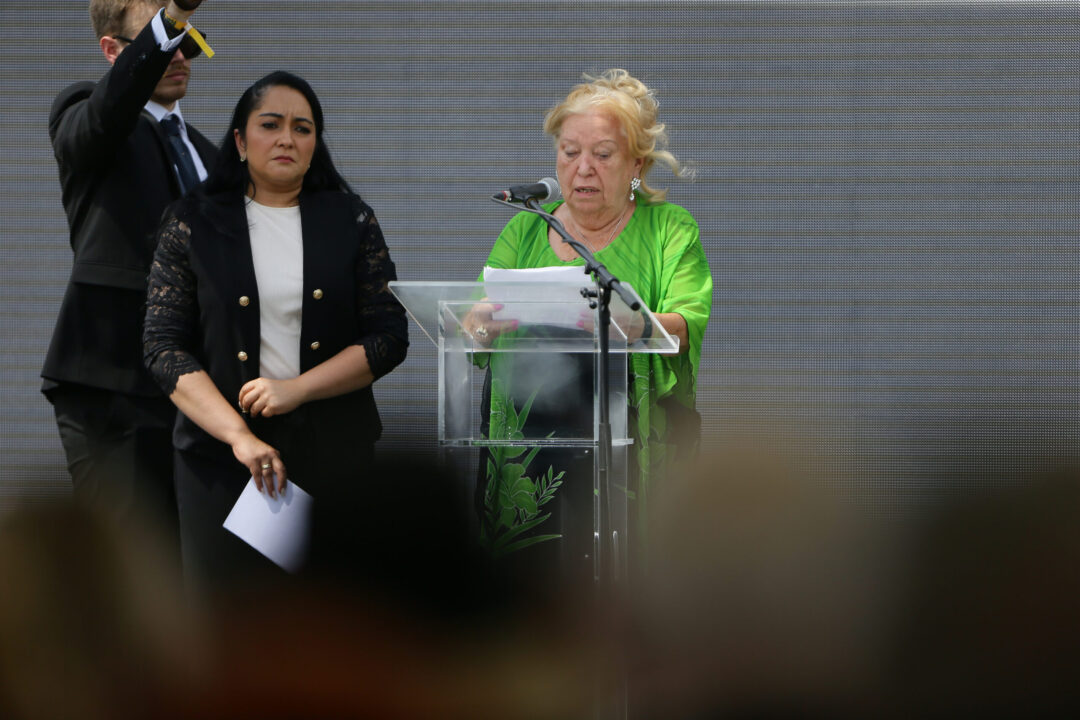
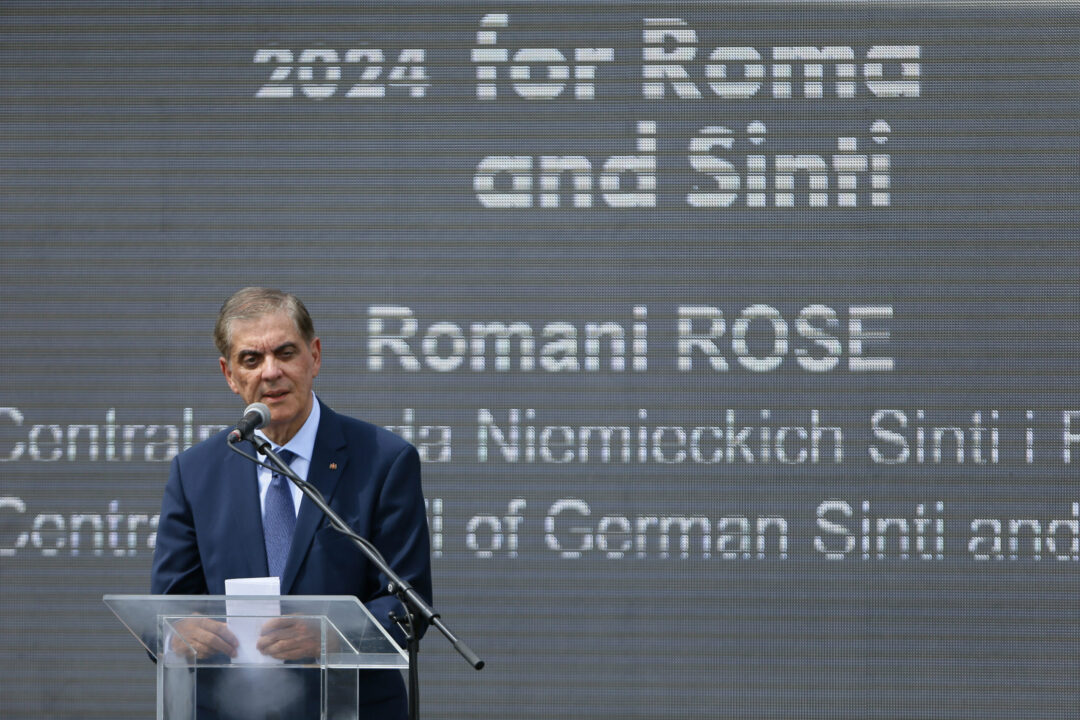
Romani Rose made it clear at the memorial: “Auschwitz stands as a symbol of the Holocaust committed by the Nazis against 500,000 Sinti and Roma and 6 million Jews in NS-occupied Europe. Among us Sinti and Roma, there is virtually no family that does not associate the term ‘Auschwitz’ with the murder of their relatives.”
Roman Kwiatkowski, President of the Association of Roma in Poland, emphasised: “Auschwitz-Birkenau is a symbol of the largest crime against humanity in the history, committed of the Nazis against 500,000 Roma and Sinti. The liquidation of the Roma camp did not mean the end of the extermination for us, we continued to be murdered, for we were to make room for our Jewish fellow brothers in misery, who, like us, were doomed to annihilation. During World War II, Roma and Jews, united in a tragic community of suffering, becoming victims of the same genocidal regime, which strengthened the bond of solidarity between our peoples. The Holocaust of the Roma and Sinti is still far too little heard and too rarely discussed in the context of World War II history. It is our collective responsibility to ensure that this tragedy is remembered and never forgotten.”
The President of the Polish Senate, Małgorzata Maria Kidawa-Błońska, who attended as the highest-ranking representative of the Republic of Poland to date, stated in her speech: “After what happened at Auschwitz, we believed in Europe that the slogan “Never Again!” would become a guideline for all countries and politicians for good. Today, after Russia’s aggression against Ukraine, we experience that nothing is given once and for all. Neither peace, nor democracy, nor trust, nor even memory. This is the bitter knowledge, but it is also knowledge that impels action. I believe that this time the solidarity of the free world towards the peoples who are falling victim to aggression will not come too late, and that it will allow us to prevent a recurrence of the tragedy that befell the Roma and Sinti eighty years ago. It is their story that tells us that the struggle for freedom and peace is an eternal journey.”
“Auschwitz is synonymous with the greatest crime ever committed by humans against humans. It is synonymous with the break with civilisation unleashed by Germany. With the will to annihilate European Jewry. With the genocide of the Sinti and Roma. Here in Auschwitz, the racial fanaticism of the Nazis culminated in the savage wiping out of human lives”, said Bundestag President Bärbel Bas in her speech. She is the first senior representative of the Bundestag to have travelled to Auschwitz to commemorate the worst of Germany’s crimes against humanity and remember the people who were murdered there by the National Socialists: the Roma and Sinti, the Jews, the Poles and the citizens of other nations.
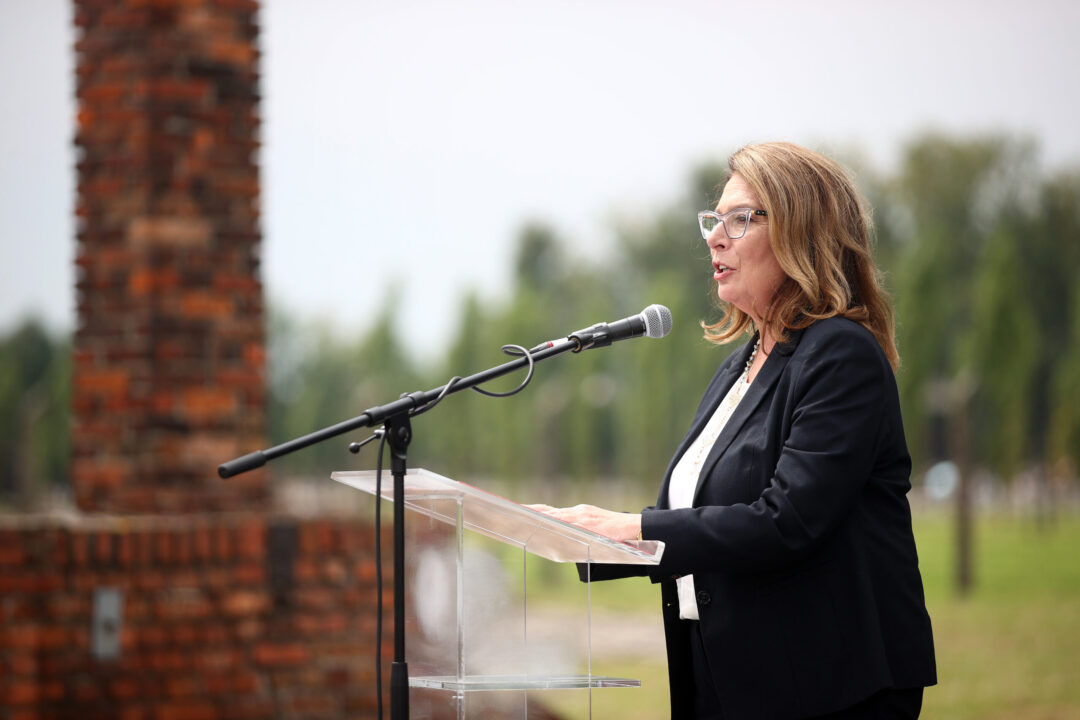
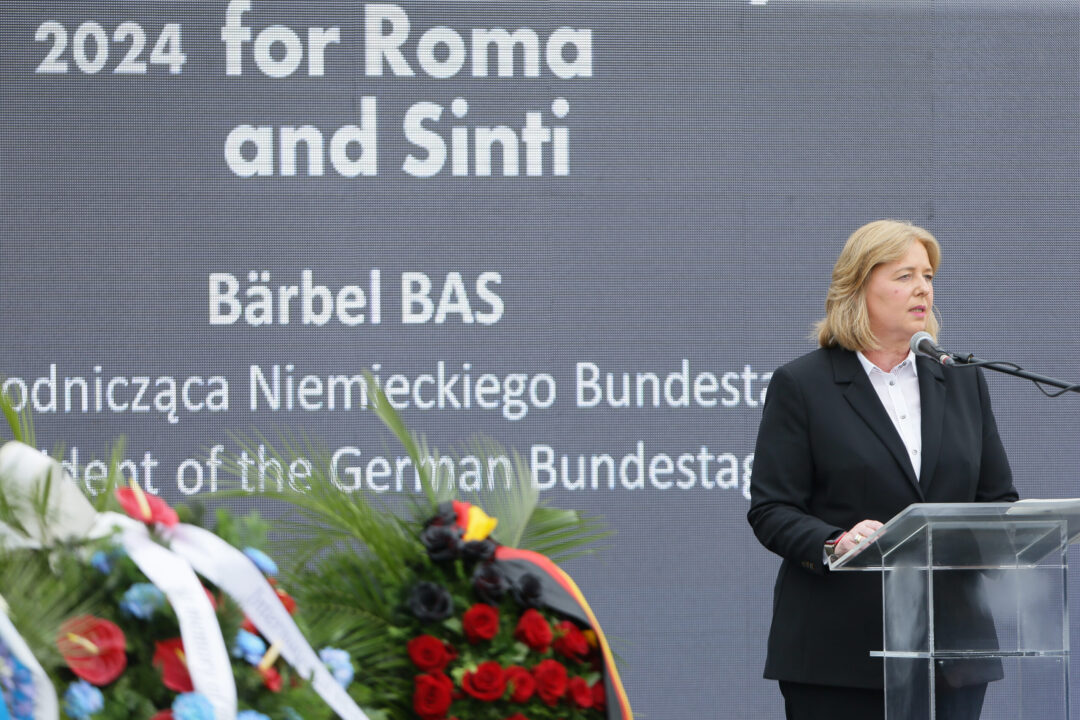
On Memorial Day, Bärbel Bas paid tribute to the commitment of the Sinti and Roma who fought against the suppression and silencing of the crimes: “The Sinti and Roma survivors, together with their children and grandchildren, took up this fight. They broke the silence and confronted Germany with its crimes. And they have insisted on equal treatment… They have done great service to democracy and the culture of remembrance in Germany. Today, the suffering of the Sinti and Roma has a firm place in Germany’s public remembrance. Even now, awareness within society of the genocide of the Sinti and Roma is not something which can be taken for granted. Hostile attitudes towards Sinti and Roma, and discrimination against them, are still widespread. We need respect and acceptance.”
In his welcoming address, the Secretary-General of the United Nations, Antonio Guterres, also condemned the fact that Sinti and Roma continue to be exposed to traditional antigypsyism in Europe.
The Chairman of the Yad Vashem Memorial in Israel, Dani Dayan, expressed his solidarity with the murdered Sinti and Roma in his speech: “At this pivotal and symbolic commemoration, at this horrible yet meaningful place, I would like to express on behalf of the Jewish people our profound recognition of the catastrophic genocide inflicted upon the Roma and Sinti parallel to the Holocaust, and I wish to relate personally to your eternal grief.”
The commemorative event was streamed live on the website https://www.roma-sinti-holocaust-memorial-day.eu/. The video is permanently available there with a wide range of information (DE/EN/PL/ Romani) on the Holocaust against the minority
